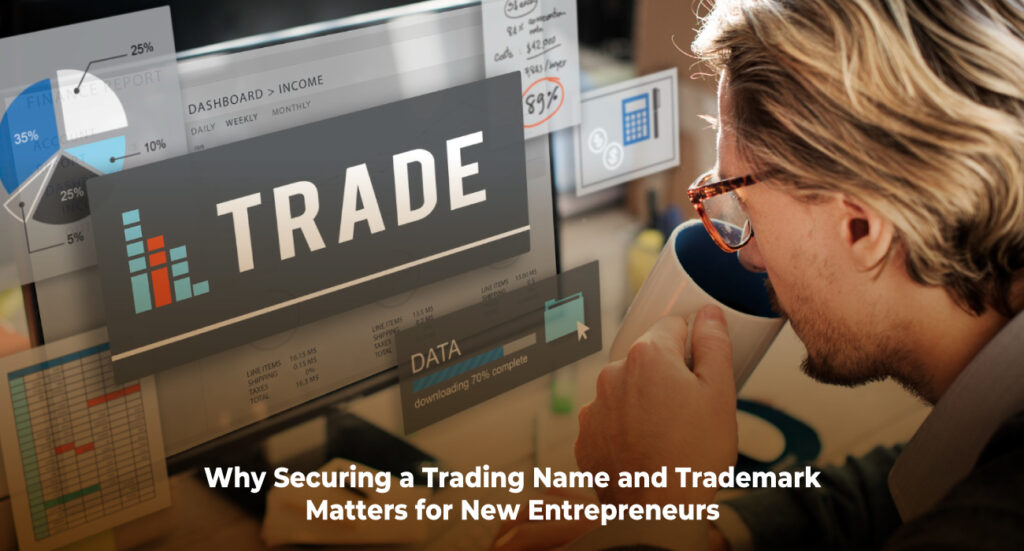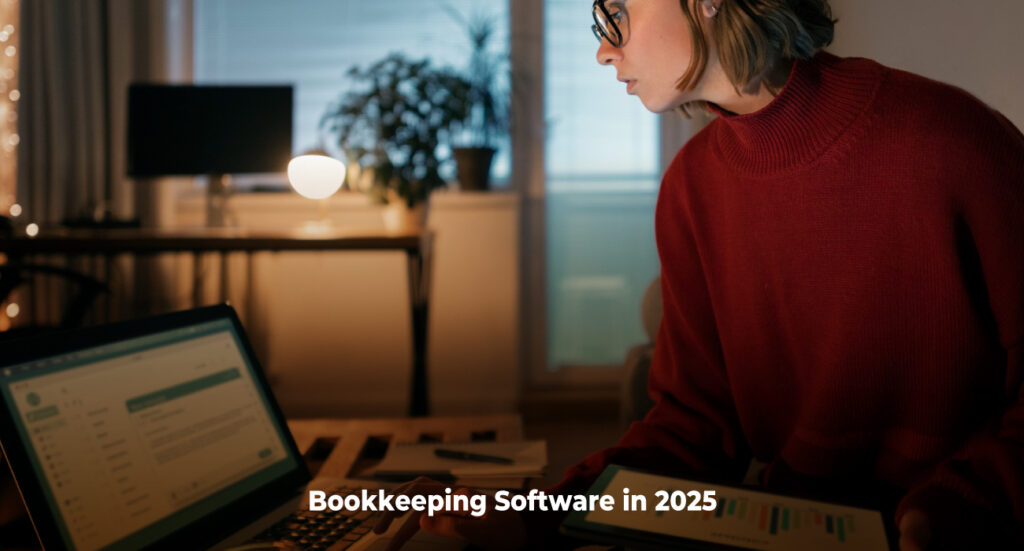The Ultimate 2025 Small Business Guide – From Setup to Success
2025 seems to be the year of entrepreneurs. Over the past few months, we’ve seen a surge in clients taking the leap into small business ownership—whether it’s opening a coffee shop, running a grocery store, launching environmental building inspections, establishing medical practices, or setting up a paint shop. The queries we’ve received from both new and existing entrepreneurs have inspired me to write this article, hoping it will help you navigate the early stages of running a business.
Starting a business is exciting, but it can also be overwhelming. With so many moving parts—legal, tax, finance, and operations—it’s easy to overlook key steps that can set you up for success. In this 2025 Small Business Guide, we’ll walk through some critical areas every aspiring entrepreneur should consider before and after launching their venture.

1. Business Structures in 2025: Choosing the Right Business Structure
Your business structure is the foundation of everything that follows. If it’s not robust, you may miss out on tax planning opportunities, fail to protect your assets, or limit your ability to scale in the future.
Generally, there are four common business structures in Australia: sole trader, partnership, company, and trust. Each has its advantages and disadvantages when it comes to tax obligations, reporting requirements, and liability.
- Buying an existing business: Do your research, think carefully, and consult your tax specialist before signing any agreements. The wrong structure could expose you to unnecessary risks or higher taxes.
- Starting from scratch: If funds are tight, you can begin as a sole trader or set up a simple company structure. As your business grows and shows potential, you can restructure later with professional advice to optimise tax and asset protection.
Getting the structure right from day one can save you thousands of dollars—and a lot of headaches—down the track.

2. Why Securing a Trading Name and Trademark Matters for New Entrepreneurs
Your business name is one of your most valuable assets. It represents your brand, your reputation, and your place in the market. However, registering a business name alone does not protect you from others using a similar name.
If you’re serious about building a long-term business, consider registering a trademark. A trademark gives you exclusive rights to use your name and logo in Australia, preventing competitors from copying your brand. It also adds value to your business if you decide to sell it in the future.
In 2025, with so many businesses launching online and offline, trademark protection is more important than ever. Think of it as an insurance policy for your brand identity.

3. GST, PAYG & Single Touch Payroll – Essential Registrations for Small Businesses
Not all businesses need to register for Goods and Services Tax (GST) immediately, but once your annual turnover exceeds $75,000, registration becomes mandatory. Many new entrepreneurs delay GST registration and later find themselves in trouble with the ATO, having to pay GST retrospectively.
Similarly, if you plan to hire employees or pay yourself through wages as a director, you’ll need to set up PAYG (Pay As You Go) withholding. This ensures tax is withheld from wages and remitted to the ATO, avoiding unexpected tax debts later on.
Alongside PAYG, most businesses are now required to use Single Touch Payroll (STP). STP is an ATO-mandated system that reports employees’ wages, superannuation, and PAYG withholding information each time you process a payroll run. It helps keep your business compliant and ensures employees’ tax and super records are accurate in real time.
A quick chat with your accountant before you start trading can help you get these registrations right from the beginning and avoid future headaches.

4. Bookkeeping Software in 2025: Getting It Right from Day One
Many small business owners we meet think bookkeeping is easy—or that technology will somehow do it all for them. While AI tools are improving every year, in 2025 the “bookkeeping in your sleep” dream isn’t a reality just yet.
Cloud-based accounting systems like Xero, QuickBooks, and MYOB make life easier, but they still require set-up, coding of transactions, and reconciliations. If you or your partner plan to manage bookkeeping to save costs, make sure you invest in proper training. Most providers offer free tutorials, videos, and webinars to help you understand the basics.
Accurate bookkeeping is more than just compliance—it’s the foundation for understanding your cashflow, profits, and tax obligations.

5. Compliance – Your Ally for Growth in 2025
Many small business owners see compliance as a burden, but in reality, it’s one of your biggest allies in running a successful business. Lodging and paying your Business Activity Statements (BAS), PAYG withholding, Superannuation Guarantee and Annual Income Tax Return on time is essential in 2025. It’s not just about avoiding penalties; it’s about maintaining financial discipline, ensuring your tax position is accurate, and showing that your business is well-managed.
If you ever need a business loan, equity loan, or finance approval, banks will closely examine your ATO lodgements, accountant-prepared financials, and payment history. Having your compliance up to date positions you as a reliable borrower and gives lenders confidence in your business.
Ultimately, compliance gives you real-time insight into your finances, helps you make smarter decisions, and ensures you’re ready for tax time without stress. Think of compliance not as an obligation, but as a tool that strengthens and grows your business.

6. Paying Yourself a Wage – Why It Matters
Many business owners fall into the trap of treating all incoming cash as personal income. This approach can create confusion about the true profitability of the business and often leads to cashflow problems.
A smarter approach is to pay yourself (or fellow directors) a regular, fixed wage. This gives you:
- Predictable personal cashflow
- A clear separation between business profits and personal spending
- A more accurate understanding of the company’s performance
By treating yourself like an employee, you ensure the business stands on its own financially—and you avoid overestimating how much you can safely withdraw.
7. Keep Separate Bank Accounts for GST and PAYG Management
Mixing personal and business transactions in one account is a recipe for disaster. It makes bookkeeping harder, tax time more stressful, and cashflow tracking almost impossible.
Ideally, open two separate accounts for your business:
- Operating account: For day-to-day expenses and income.
- Tax and GST account: For setting aside funds to meet your BAS, GST, PAYG, and income tax obligations.
This simple habit helps you avoid the common pitfall of spending money that’s already earmarked for the ATO.

8. Why Many Small Businesses Fail – The Cashflow Trap
Statistics show that cashflow issues are one of the leading causes of small business failure. Too often, owners spend beyond their means, using creditor funds, GST money, or tax money to cover personal expenses.
Living off future sales or unpaid bills is dangerous. When the debt catches up—or tax bills arrive—many businesses simply can’t recover. A genuine business owner stays alert, maintains healthy reserves, and respects that not all money in the account is available to spend.
Good cashflow management isn’t just about survival—it’s the foundation for sustainable growth.
9. Asset Protection – Thinking Long Term
Running a business carries risk. If your business is sued, operates negligently, or trades insolvent, you as a director can be personally liable. While a company structure provides limited liability, it doesn’t shield you from penalties due to misconduct or personal guarantees signed with banks or landlords.
For long-term wealth building, consider holding passive assets (like your family home or investments) in separate structures—such as a trust or another company—rather than your personal name. This ensures that if the worst happens, your personal wealth remains protected.
Asset protection is a key element of smart tax and business planning. Skipping this step could undo years of hard work in an instant.

What Should You Do Next?
Starting a small business in 2025 is an exciting opportunity—but success depends on making informed decisions early on.
- Talk to a tax specialist or accountant Like Investax before you start. Getting advice upfront is far cheaper than fixing mistakes later.
- Set up your systems properly—from structure and registrations to bookkeeping and bank accounts.
- Respect your cashflow and never assume every dollar in the account is yours to spend.
- Plan for the future, including asset protection and trademarking your brand.
An accounting fee paid to a good accountant should be seen as an investment—not a cost. Especially when that fee is 100% tax deductible, it makes sense to work with someone who understands the complexity of small business tax and structure planning. If your current accountant isn’t experienced in small business matters, maybe it’s time to give Investax a go.
With the right planning, discipline, and support, 2025 could be the year your entrepreneurial dream becomes a thriving, profitable business.
General Advice Warning
The material on this page and on this website has been prepared for general information purposes only and not as specific advice to any particular person. Any advice contained on this page and on this website is General Advice and does not take into account any person’s particular investment objectives, financial situation and particular needs.
Before making an investment decision based on this advice you should consider, with or without the assistance of a securities adviser, whether it is appropriate to your particular investment needs, objectives and financial circumstances. In addition, the examples provided on this page and on this website are for illustrative purposes only.
Although every effort has been made to verify the accuracy of the information contained on this page and on our website, Investax Group, its officers, representatives, employees and agents disclaim all liability [except for any liability which by law cannot be excluded), for any error, inaccuracy in, or omission from the information contained in this website or any loss or damage suffered by any person directly or indirectly through relying on this information.





